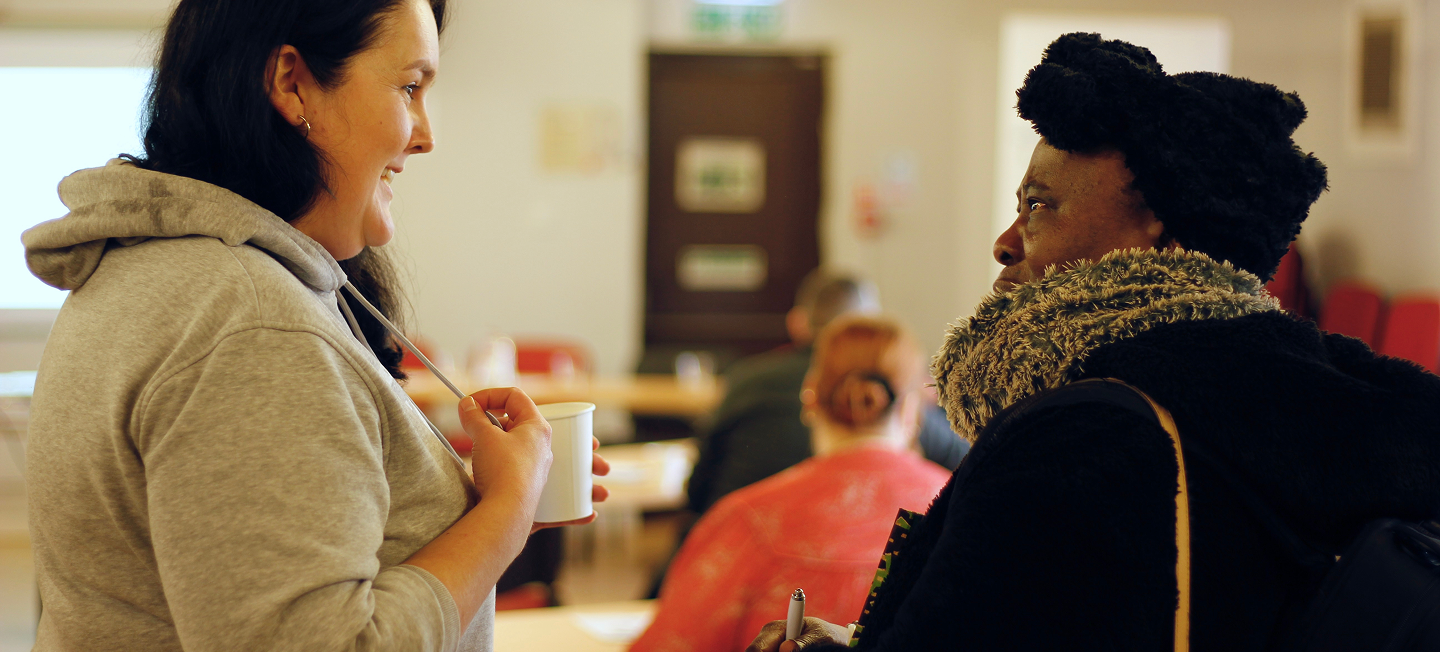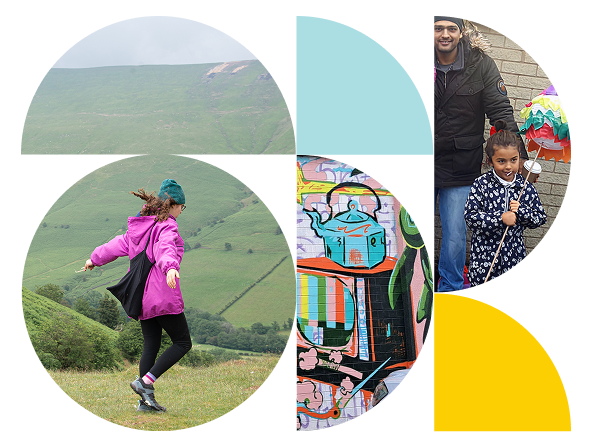About us
The UK faces growing socioeconomic divides, with deep poverty the everyday experience of many people. While a strong social network can mitigate the effects of poverty, there are many communities where poverty weakens social ties, and people lack the opportunities, spaces and resources to enable them to build and sustain relationships to help them thrive.
Communities, often supported by foundations and funders, have sought to address these problems, and understand the role of community-led activity in supporting connectedness in different forms.
While there is a rich and inspiring landscape of community action in the UK, learning is uneven and often confined to the local area. We lack the evidence base and mechanisms to support investment or scale up effective approaches. This is the challenge the Centre seeks to address.

The Centre is a hub for collaboration across disciplines, sectors and places – rooted in community leadership and designed to transform policy and practice. We involve partners in universities, communities, policy, business, and civil society – united in our vision to develop connected communities.
Through the life of the programme, this partnership will grow and provide more opportunities to test out new ideas and uncover the challenges faced by communities.
Our five ‘catapult areas’ are Darnall in Sheffield, the Market area of Belfast, Lambeth in London, Alloa in Clackmannanshire and Talgarth in Powys.
Research and Innovation Programme
The Centre draws on three main ideas around community connectedness:
- Community – where people live and their connections with neighbours
- Relationships – social interactions that have meaning for people
- Social capital – the value or resources that people get from their networks and relationships


Our delivery is built around three workstreams:
Interdisciplinary research groups
The interdisciplinary research groups bring together social and behavioural scientists, architects, designers, computer scientists and engineers, as well as non-university specialists in the co-design and delivery of interdisciplinary research themes which respond to the challenge of developing scalable and translatable knowledge. Our initial six groups are:
- Social infrastructure
- Nature and built environment
- Relationships across the life course
- Digital technologies
- Systems, institutions and markets
- Diversity and place
Implementation units
The main work of the Centre is delivered through four implementation units:
- What Works Evidence: developing a new evidence base to inform policies and practice
- Innovation in Data and Methods: developing new tools and measures of community connectedness
- Innovation in Community Engagement and Partnerships: co-producing research and innovation in five community catapult areas of the United Kingdom
- Innovation in Policy and Practice: working with policy makers, communities and partner organisations to test out and scale up new models for stimulating community connection
Each unit is overseen by an expert advisory group.
People programmes
The Centre is underpinned by two people programmes.
- The first focuses on developing the next generation of researchers, community practitioners and policymakers, skilled in co-design, joint working and innovation.
- The second ensures that equalities, diversity and inclusion are embedded in all our work
The workstreams involve multi-disciplinary and multi-sectoral teams, supported by governance and a professional services team, to deliver an ambitious programme of research and innovation.
These are designed to work together, creating a cycle that includes:
- theoretically informed research
- evidence synthesis and analysis
- development and testing of new tools and approaches
- policy and practice implementation
- capacity building.
Our approach to capacity building has three central aims:
- to develop a new wave of researchers
- to support policymakers and practitioners to develop the skills to carry out research
- to embed our ethos of equality, diversity and inclusion
All academics, PhD students and researchers associated with the Centre will spend time embedded in one of the catapult areas, or with policymakers or funders, through research in practice placements or our fellowship programme. We will offer similar opportunities for staff and volunteers from catapult areas, policymakers, and funders to be embedded with university partners.
The workstreams involve multi-disciplinary and multi-sectoral teams, supported by governance and a professional services team, to deliver an ambitious programme of research and innovation.
Our approach to governance, leadership and management is founded on two principles:
- Communities are at the heart of the Centre: our community partners are involved throughout governance and delivery.
- Collaboration and partnership with non-university partners are critical to the governance and implementation of the Centre.

How we’re funded
The Centre is supported by UKRI through its creating opportunities, improving outcomes theme, one of five UKRI-wide initiatives aiming to harness the full power of the UK’s research and innovation system to tackle large-scale, complex challenges. Through a five-year strategy, ‘Transforming Tomorrow Together’, UKRI aims to harness the full power of the UK’s research and innovation system to tackle large-scale, complex challenges. To do this, UKRI is investing £185 million in five strategic themes which will continue tackling existential threats to humanity by encouraging new ways of working across disciplines.
The Centre is also supported by a grant from the Local Trust. The grant is a key component of Local Trust’s legacy activities and funds will be used to support the delivery of key Centre activities.